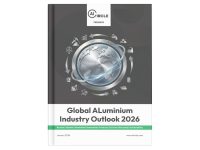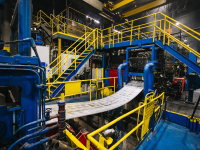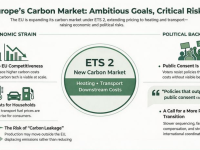An interesting press release landed on my desk the other day.
According to the press release, China’s Chalieco, the engineering division of Chinalco, has signed an agreement with an Australian company for the supply of graphite from a mine in Mozambique. The press release was issued by the miner, a company called Syrah Resources, and in it, they say that Chalieco plans to use the graphite for the production of anodes for the aluminium industry, among other things.
If Chalieco is going to start using graphite in anodes, even in blend proportions, they are introducing their cousins in Chalco to a world of serious potential pain.
Graphite has superior properties to petroleum coke, especially in relation to the electricity that passes through the anode. Graphite has a lower resistance to electricity, and allows the electricity to pass through more easily than petcoke does. Graphite has less impurities than petcoke, so there is less to get into the pure aluminium metal that is generated by the electrical process.
All sounds good, so what’s the problem? Actually, there are several problems, real and potential. In the first place, graphite is more expensive than petcoke, and this material will have to be imported from Mozambique.
But the problems are not just economic ones. Graphite expands at a different rate to petcoke when heat is applied to it. If you have some part of the anode expanding at a different rate than the rest of it, you open yourself to problems of cracked anodes. Second, you need to make sure that you have exactly the same amount of graphite in every anode in the pot. If you don’t, then each anode will perform slightly differently, and eventually the pot will become unstable. Finally, although you gain the improved/lower electrical resistance, you only gain that benefit for the proportion of the anode that contains the graphite, meaning the net result in operating costs is tiny, and not worth the increased cost of raw materials.
And all these problems are being introduced into a company that has a poor record when it comes to anode manufacturing and pot operations.
The press release was written by the folks at Syrah Resources, who seem to have taken Chalieco at their word*. In the press release, another purpose for the graphite was listed as being for production of the cathode – the electrical terminal at the bottom of the pot. Graphite is already used in some cathodes, and China’s graphite industry verges on being a State Secret – it is tied up by a small number of players, with complete opacity. But the same question remains – why bother importing graphite all the way from Mozambique?
I hope that Syrah Resources has received Chalieco’s payments on this deal.
* The press release also says that the aluminium industry uses 13 million tonnes of anodes a year, at a rate of 560 kgs per tonne of metal produced. Really? In China maybe, and at an old smelter.

















